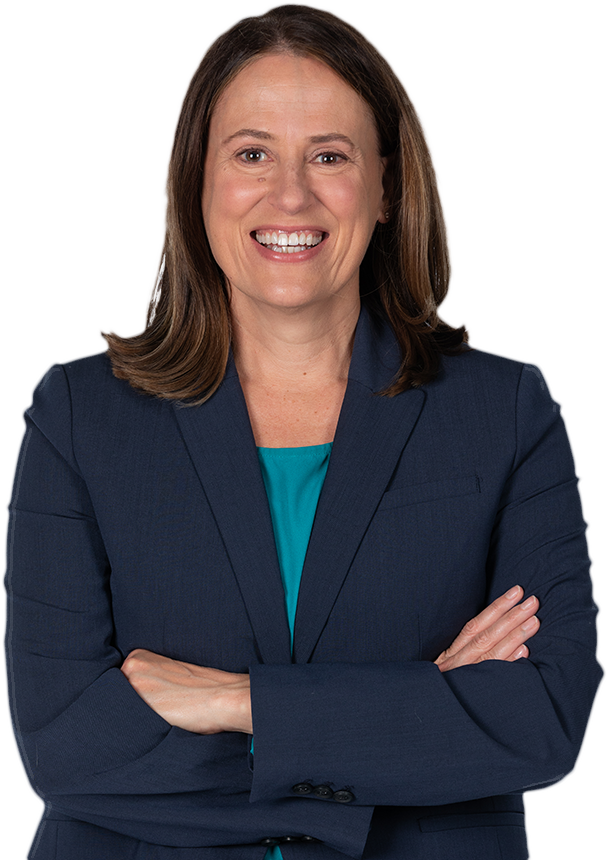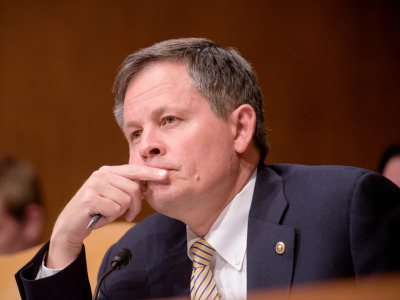With President Donald Trump sliding in the polls, a handful of Senate seats in farm states he won handily in 2016 are increasingly at risk as Democrats look to win control of the chamber in November.
In Iowa, which Trump carried 51% to 42%, a new Des Moines Register poll shows first-term Sen. Joni Ernst (above) trailing within the margin of error to businesswoman Theresa Greenfield, who easily won the Democratic nomination on June 2.
In Montana, which Trump won by 21 points, first-term Sen. Steve Daines drew a challenge from popular Gov. Steve Bullock.
In Kansas, Republicans are struggling to hold onto the seat being vacated by Senate Ag Chairman Pat Roberts, who is retiring. Trump carried Kansas by 20 points, 56% to 36%, but many Republicans fear that the controversial former state secretary of state, Kris Kobach, could win the Aug. 14 primary.
Also at risk for the GOP is North Carolina Sen. Thom Tillis, and at least one of two seats in Georgia that are up for election. Polls have consistently shown Tillis running neck and neck with Cal Cunningham, a lawyer and state senator. In Georgia, Senate Agriculture member Kelly Loeffler, who was appointed to replace the retired Johnny Isakson, is running to finish out his term. The state's senior senator, David Perdue, cousin to Agriculture Secretary Sonny Perdue, also is up for election.
Republicans currently hold a 53-47 majority and are favored to pick up the Alabama seat that Democrat Doug Jones won in a 2017 special election. But Democrats are favored to take over seats in Colorado and Arizona, where polls show challengers to GOP Sens. Cory Gardner and Martha McSally comfortably ahead, and Maine Sen. Susan Collins’ re-election race is rated a toss-up.
If Democrats win the races in Colorado, Arizona and Maine but lose Alabama, they would need to win one more seat to take control of the Senate if former Vice President Joe Biden wins the White House, and two seats if Trump wins re-election. The vice president breaks ties in the Senate in the case of a 50-50 split.
Nathan Gonzalez, editor and publisher of Inside Elections, tells Agri-Pulse the Senate races and other down-ballot races are likely to be a referendum on Trump.
“Candidates might be able to outrun their presidential nominee by a few points, but I’m skeptical many candidates will be able to do much more than that. This is a polarized electorate with a polarizing president running for re-election,” he said.
Matt Paul, who ran Hillary Clinton's Iowa caucus operation and is now a Des Moines-based principal with Cornerstone Government Affairs, says "there just appears to be a massive amount of Trump fatigue out there." Between that, the coronavirus pandemic, "a horrible economy and other factors, Senate Republicans and the Trump campaign are going to be playing a whole lot of defense," he said.
He also thinks Democrats have a better chance with non-college-educated women this year because of Trump's overall gender gap.
The latest Des Moines Register poll shows Trump leading Biden by a single point in the state, and Greenfield ahead of Ernst 46% to 43%. The poll has a margin of error of 3.8%. A June 3-4 survey by Public Policy Polling, a Democratic polling firm, showed Greenfield ahead 45%-43%.

Theresa Greenfield
“Iowa looks like a legitimate Republican headache or Democratic opportunity, depending on how you want to look at it,” said Gonzalez.
Gonzalez currently has the Iowa, Kansas and Montana races rated as “lean Republican” and the Arizona, Maine and North Carolina races as toss-ups.
The Cook Political Report rates the Iowa, Kansas, Montana races as well as the two Georgia seats as “lean Republican” and the Maine, Colorado, Arizona and North Carolina races as toss-ups.
A third rating group, Larry Sabato’s Crystal Ball, has the Iowa and Montana races as well as Loeffler’s seat as “lean Republican,” and Maine and North Carolina as toss-ups.
Iowa GOP strategist Eric Woolson says Greenfield is benefiting from a heavy TV advertising push led by the Senate Democratic leadership, but he still expects the race to be close in November.
“Both parties are going to pour a ton of money into the state, so it will be a battleground. It’s a lot less expensive to buy a Senate seat in Iowa than it is in Texas or Virginia or somewhere like that,” Woolson said.
He agreed that Trump’s relative popularity will be a factor in a race and said Republican margins in rural areas will be critical to Ernst. “We have to run up big numbers in northwest Iowa and western Iowa,” the state’s strong GOP regions, he said.
Greenfield, who describes herself as a "scrappy farm kid," is playing up her rural roots. In one TV ad, which shows her walking near a barn, she says she learned on her family's farm that "there were no boy jobs or girl jobs, just jobs that need to get done. So, I learned to work."
In Montana, Democrats have their “best-possible candidate” in the popular Bullock, who is finishing his second term, said Gonzalez. “The key questions are whether voters compartmentalize state and local issues, and whether Bullock’s more liberal statements and issue stances from his brief presidential run still resonate in the fall.
Bullock ran for the Democratic presidential nomination in 2019 before dropping out in December well ahead of the first votes. He opposed Medicare for All proposals being pushed by Bernie Sanders and other candidates at the time but also expressed support for tighter gun restrictions, including a ban on assault weapons.
Campaigning at the Iowa State Fair last year, Bullock criticized Trump’s trade war with China. “We’ve got to be tough on China, but we can’t do it alone.”
Daines has been a reliably conservative voice in the Senate, but with the election on the line, he and Gardner recently won support from Majority Leader Mitch McConnell, R-Ky., to move their Great American Outdoors Act, a bill that would permanently fund the Land and Water Conservation Fund. Groups representing cattle and sheep producers oppose the bill because of the permanent funding for federal land acquisitions.

Sen. Steve Daines, R-Mont.
In Kansas, Secretary of State Mike Pompeo's refusal to enter the race for Roberts’ seat left open the possibility that Kobach could defeat a crowded field in the GOP primary. “Kansas is less vulnerable for Republicans if someone other than Kobach wins the nomination,” Gonzalez said.
Interested in more coverage and insights? Receive a free month of Agri-Pulse or Agri-Pulse West by clicking here.
Barbara Bollier, a state senator and retired anesthesiologist who left the GOP in 2018, is expected to win the Democratic nomination.
A poll commissioned by Rep. Roger Marshall’s campaign in May showed him leading Kobach 33% to 26%. No other candidate broke double digits. Marshall has the endorsement of the Kansas Farm Bureau.
Bollier said she left the GOP in part because of her objections to Trump’s leadership but also because of Republican stands on social issues, including transgender rights.
For more news, go to www.Agri-Pulse.com.


